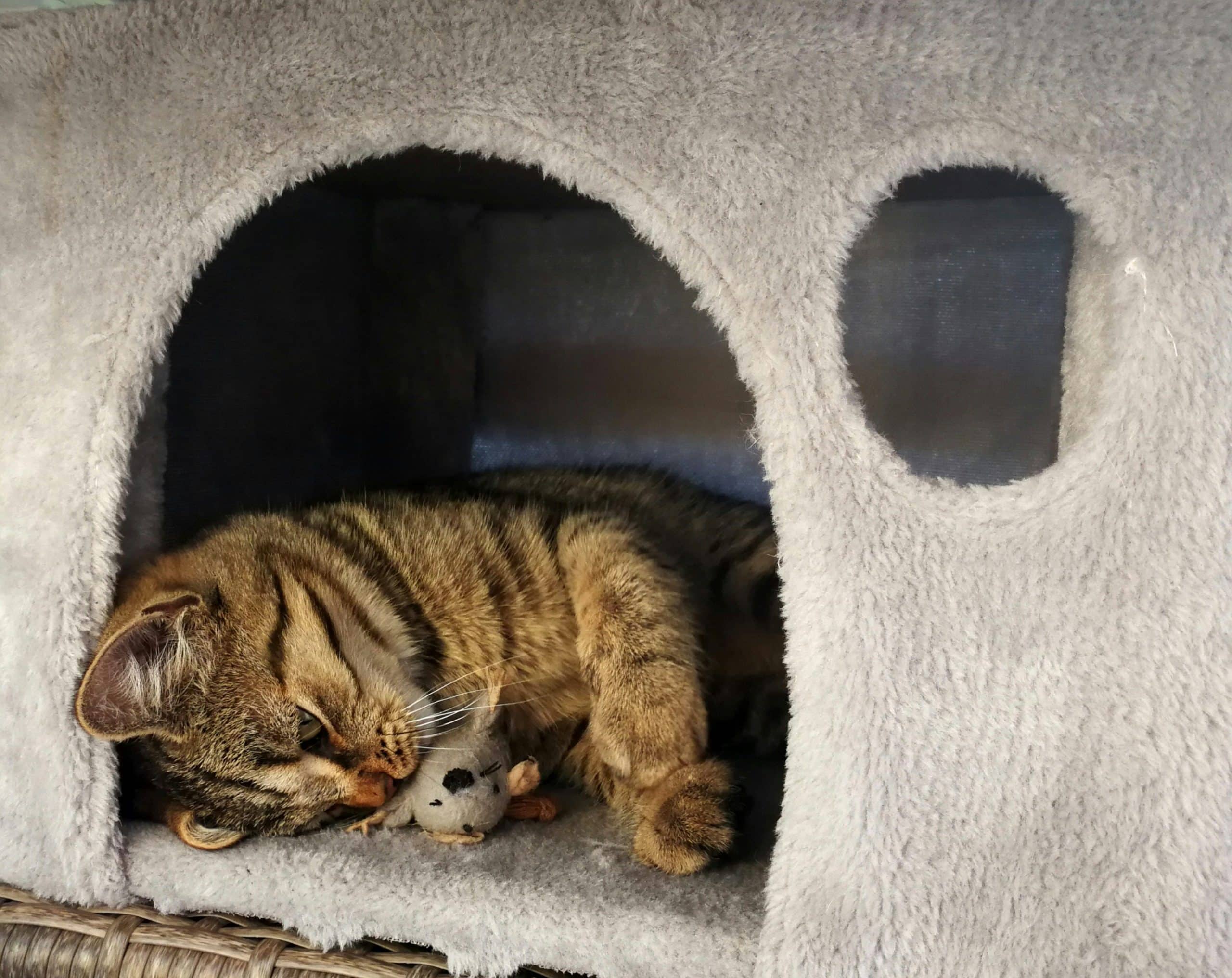The question, “Can indoor cats get lonely?” is not uncommon among pet lovers. This query is especially pertinent for individuals who own cats as pets and often find themselves away from home for long hours. For a species that’s been dubbed as aloof and independent, it can be surprising to discover that cats, like humans, can indeed experience loneliness. It is crucial for cat owners to understand that while cats value their independence, they also have social needs that require fulfillment.
Understanding Cat Behaviour
To fully grasp the concept of loneliness in cats, it’s important to first understand their behaviour. Cats are known for their aloofness. However, it’s a common misconception that they prefer to be left alone.
A lire en complément : How to create a pet-friendly office space at home?
Cats are a lot more social than most people give them credit for. They’re solitary hunters, but they also have their social needs. Cats, especially kittens, need play, interaction, and companionship. When these needs are not met, your pet cat can get lonely.
Cats aren’t like dogs, who show obvious signs of loneliness and separation anxiety. Cats are more subtle, and their signs of loneliness often manifest in their behavior changes, such as becoming more withdrawn or aggressive.
Dans le meme genre : The benefits of pets on mental health
When you leave your cat alone for a long time, they might start showing signs of stress and loneliness. Changes in eating habits, excessive grooming, or sudden aggressive behavior can all be signs that your cat is lonely and craving social interaction.
Mitigating Loneliness in Your Cat
Now that we’ve established that cats can get lonely, the question becomes, what can we do about it? Thankfully, there are several ways to ensure your cat doesn’t feel lonely, even if you’re away for long periods.
A good starting point is to establish a routine. Cats are creatures of habit – they like to know when it’s time to eat, play, and sleep. Make sure you feed them at the same times every day, and set aside some time each day for play and interaction.
Another crucial thing to do is provide them with stimulating toys. Interactive toys that move or make noise can keep your cat entertained for hours. This will not only keep your cat occupied while you’re away, but also ensure they’re getting sufficient exercise.
Just like humans, cats can benefit from having a companion. If your lifestyle permits, consider getting another cat. Having another cat in the house can help to keep your pet from feeling lonely as they will have a friend to interact and play with.
The Role of Diet in Your Cat’s Well-being
While toys and companionship can significantly help to curb loneliness in cats, it’s also vital to pay attention to your cat’s diet. What your cat eats plays an enormous role in their overall health and well-being, and yes, even their mood.
Cats are obligate carnivores, which means they require a diet high in meat. Look for high-quality cat food that lists a source of animal protein, like chicken, fish, or beef, as the first ingredient. Feeding your cat a balanced diet will ensure they’re getting all the nutrients they need to stay healthy both physically and emotionally.
Remember to always leave plenty of fresh water for your cat. Hydration is just as important for cats as it is for humans and can impact their overall mood and health.
When to Seek Professional Help
If you’ve done everything you can, but your cat still seems lonely or exhibits signs of distress, it might be time to seek professional help. Prolonged periods of stress in a cat can lead to health issues, including urinary problems, changes in appetite, and behavioral changes.
If your cat’s behavior changes significantly or if they seem unwell, take them to the vet as soon as possible. A vet can check for any underlying health issues that could be causing your cat’s symptoms.
While it’s normal for cats to have occasional moments of solitude, prolonged periods of loneliness are not healthy. As a pet owner, it’s your responsibility to ensure your cat’s social needs are being met. Remember, a happy cat is a healthy cat.
The Impact of Leaving Your Cat Alone for Extended Periods
Contrary to the belief held by some pet parents, cats will not always happily cope with being left alone for extended periods of time. This is especially true for domestic cats who have been accustomed to human companionship and interaction.
While felines are generally independent creatures, cats left alone for a long stretch can experience a form of separation anxiety. This can be particularly pronounced when the pet owner’s absence is sudden or unexpected.
An extended absence of a pet parent can lead to your cat feeling anxious and lonely. These feelings can manifest in many ways, such as changes in appetite and litter box habits, or uncharacteristic aggressive behavior. Particularly anxious or lonely cats may even urinate or defecate outside the litter box to signal their distress.
It’s crucial to remember that no matter how independent your cat may seem, they need interaction and companionship just like any other pet. If you need to leave cat alone for extended periods of time, consider hiring a pet sitter to provide your cat with some much-needed interaction and care.
The Tell-Tale Signs of a Lonely Cat
Recognizing the signs of a lonely cat is an essential skill for any pet owner. Cats are subtle creatures, and their indicators of stress or loneliness can often be overlooked.
Adult cats may display a variety of behavioral changes when they’re lonely. These can range from increased aggression, decreased interest in play, changes in food and water intake, and changes in litter box habits. They may also become overly clingy when you are at home, as the lack of interaction during your absence can make them excessively seek your attention when you’re present.
If the signs of loneliness are not addressed, it can lead to severe health problems for your feline friend. These can include urinary problems, changes in appetite, and drastic behavioral changes.
It’s important that as a pet parent, you take these signs seriously. If you notice any of these changes in your pet, consider seeking advice from a professional. A vet can provide valuable insight into your cat’s behavior and offer recommendations on how to alleviate their loneliness.
Conclusion
In conclusion, indoor cats indeed can get lonely. As pet parents, it is our responsibility to ensure that their needs for companionship and interaction are met.
If your schedule doesn’t permit adequate interaction with your pet, consider getting them a companion or hiring a pet sitter to keep them company during the day. It’s also essential to pay close attention to your cat’s diet and ensure they get plenty of fresh food and water daily.
Remember that the signs of a lonely cat aren’t always obvious. Changes in behavior, appetite, and litter box habits can all indicate that your cat may be feeling lonely. Don’t hesitate to seek professional help if your cat exhibits signs of distress or drastic changes in behavior.
While cats are known for their independent nature, they also need love, attention, and companionship. Let’s make sure our feline friends are not just well-fed and well-groomed, but also well-loved and well-interacted with. After all, a happy cat is a healthy cat.











